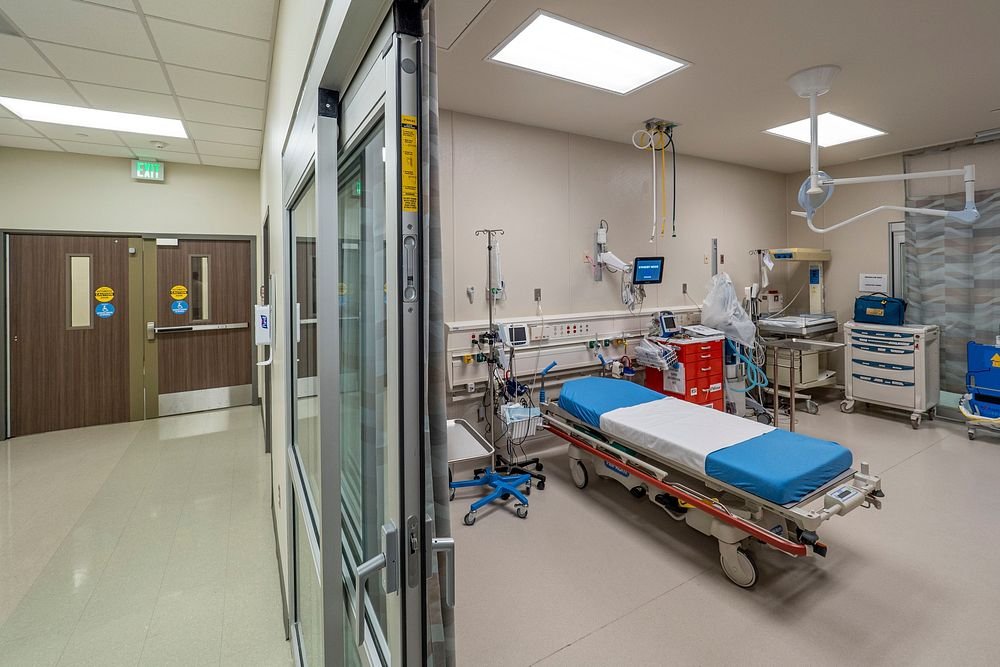Medical Research and the Assessment of Risk
An interesting ethical question revolves around medical experimentation involving human beings and the “threshold beyond which the risk becomes humanly unacceptable.” (Pontifical Council for Pastoral Assistance to Healthcare Workers, New Charter for Health Care Workers, 101). Bioethics largely came about as a major academic discipline because of the need to create ethical safeguards and ensure informed consent among human subjects in biomedical research. Terrible human rights abuses had taken place in “scientific experiments” that tortured prisoners during World War II. This led to the creation of the Nuremberg Code in 1947 with its famous ten ethical guidelines for human subjects in medical experimentation.
Today, for a clinical trial involving human beings to be approved by an Institutional Review Board (IRB), it must be judged not to involve a major health risk for the subjects. Any proposed research that goes beyond a minimal health risk for the participants is required to be closely evaluated by an IRB. The review board must diligently evaluate the potential risks and benefits of the proposed experimentation on human subjects. The possible benefits could be for the patients themselves or to help others in the future through advances in scientific knowledge. An IRB has an ethical responsibility not to approve experiments where the risks would clearly outweigh the benefits.
The World Medical Association Helsinki Declaration makes some key points regarding the ethical rules that should govern medical research.
Physicians may not be involved in a research study involving human subjects unless they are confident that the risks have been adequately assessed and can be satisfactorily managed. When the risks are found to outweigh the potential benefits or when there is conclusive proof of definitive outcomes, physicians must assess whether to continue, modify or immediately stop the study.
This highlights the fact that there is always a level of uncertainty in biomedical experimentation. Human trials should not be attempted until safety and efficacy have been tested in other ways. They should be stopped if unexpected harmful side effects arise.
Animal trials have been an established part of the lead up to experiments involving human subjects and required by law until recently. In December 2022, however, President Biden signed a new law that allows the U.S. Food and Drug Administration (FDA) to waive the requirement for animal testing before human trials if other methods can provide the needed evidence of non-toxicity of new drugs. The principle remains the same, however, that “guinea pigs” or other animal tests must establish that risks are not high before human beings are subjected to experimentation.
Informed consent is a critical pillar of any biomedical research involving human beings. It means the free acceptance by persons who are competent, or by their legal representatives if they are not capable of giving consent. They must have understood the nature of what is being proposed, both the real risks and benefits, and freely agree to go forward. Recognizing that scientists and doctors had recently and flagrantly violated this crucial ethical safeguard, the Nuremberg Code begins with a lengthy description of the kind of consent required. This is also why it is highly problematic to permit any kind of experimentation on prisoners. They are easily victims of coercion or incentives to take part in clinical trials. This brings up another important point, that those in medical trials have the right to withdraw their participation at any time.
One further aspect to consider is the question of when patients should not be allowed to subject themselves to high risks from medical trials? St. John Paul II said it is forbidden for a participant in a medical trial “to endanger his life, his equilibrium, his health, or to aggravate his illness.” (Pontifical Council for Pastoral Assistance to Healthcare Workers, New Charter for Health Care Workers, 101 (quoting John Paul II, Address to an International Conference on Pharmacy, October 24, 1986, 4). Just as there is a moral prohibition on suicide, so too persons cannot be permitted to undergo experiments that have a high chance of causing their deaths with no proportionate benefits. It could, of course, be ethical to consent to an operation with only a 40% chance of survival if the person’s underlying health condition gave them only a 10% chance of surviving without the surgery.
Research or experimentation on human beings cannot legitimate acts that are in themselves contrary to the dignity of persons and to the moral law. This is clearly the case in experimentation on human embryos which is not for their direct benefit. The subjects’ informed consent is vital for ethical participation in any clinical trial, but it is not sufficient to justify disproportionately dangerous experiments. It is also an ethical requirement in all clinical trials that alternatives to putting human beings at risk be explored first. Scientists must conclude that only experimentation on human beings can yield the needed scientific information. There should always be a concerted effort to minimize the risks involved for human participants, and their freedom to withdraw from a clinical trial at any time must be respected.
Joseph Meaney received his PhD in bioethics from the Catholic University of the Sacred Heart in Rome. His doctoral program was founded by the late Elio Cardinal Sgreccia and linked to the medical school and Gemelli teaching hospital. His dissertation topic was Conscience and Health Care: A Bioethical Analysis. Dr. Meaney earned his master’s in Latin American studies, focusing on health care in Guatemala, from the University of Texas at Austin. He graduated from the University of Dallas with a BA in history and a concentration in international studies. The Benedict XVI Catholic University in Trujillo, Peru, awarded Dr. Meaney an honorary visiting professorship. The University of Dallas bestowed on him an honorary doctorate in Humane Letters in 2022.


